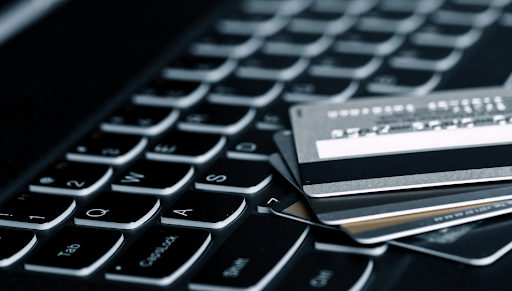Using a credit card is another way to make offline and online purchases. There is a lot more to a credit card than meets the eye, from the various fees to the potential incentives.
Perhaps you’ve only ever used debit cards and have been wary about dipping your toes into the world of credit cards. When utilized properly, daily purchases may unlock a staggering amount of value in the form of free travel or cash back. Not to mention that your ability to get financing for a vehicle or a home in the future relies on your credit score.
Table of Contents
How Do Credit Cards Operate?
A credit account with a financial institution is connected to a credit card. You are borrowing money from the credit card company each time you use the card. Any retailer that takes credit cards will let you use your card to purchase products or services. A cash advance is also possible with certain cards, although it’s not advised due to the high costs.
The balance on a credit card refers to the amount you owe. A $200 purchase would result in a $200 rise in the amount on your card. There is a credit limit on each credit card, which is the most you may ever owe the bank. For instance, if the credit limit on your card is $2,000, the debt cannot be higher. When opening your first card, it is important to know the top credit cards in Canada in order to find the perfect one. It is better for you to spend time on this, but choose a really convenient and profitable card for your needs.
What Is a Canadian Credit Score?
Your credit score in Canada is a three-digit figure that typically ranges from 300 to 900 and represents your “creditworthiness.” In other words, it serves as a kind of grade on how well you handle debt and exhibit personal responsibility.
Lenders and other parties will use your credit score to assess your eligibility for certain loans or other sorts of transactions. Your credit score affects your ability to get approved for significant credit-based purchases, such as leasing or borrowing money to buy a new vehicle or getting a mortgage for a house. Your credit score aids the lender in determining the likelihood that you will stop making payments or default on your debts in each of these situations.
How to Read Your Credit Card Statement
You may see your monthly credit card statement, which details all of the charges you must repay. If you pay your bill on time and in full, you will not be charged any further interest! However, if you pay your bill late or simply pay the minimal amount — or maybe you do both — you will incur fines.
There are two figures displayed: “remaining statement balance” and “total balance.” Your credit card statement is split down every month, generally based on the date you created your account.
For instance, your monthly credit card statement is due on the 12th of each month. This indicates “remaining statement balance” is the amount you owe from the previous billing cycle, for example, from June 13 to Jule 12 $713.57.
The payment for this billing cycle is due 25 days from the last statement day, depending on your card (you can find this information in your terms and conditions). In this situation, you must pay $713.57 by August 12 to prevent interest charges from starting.
Next, your “total balance” refers to the complete amount that you owe to your card, including the “remaining statement balance” and next month’s payment cycle. The entire sum in this situation is derived from the charges incurred between July 13 and August 12.
The final figure to notice is “available credit,” which is the amount remaining in your credit limit. This figure will change as you pay down your debt or charge more to it.
Is A Credit Card Necessary?
Although you don’t need a credit card, having one is a smart move for a number of reasons:
- Building credit: Without a credit card, it is far more difficult to establish your credit history. Your life may be impacted in a variety of ways if you have poor credit. The most apparent is that if you ever need to borrow money, it will be difficult for you to be authorized by lenders. Additionally, it may result in your application for a rental house being turned down, and in many jurisdictions, it may even raise your auto insurance premiums.
- Security: From a security standpoint, credit cards are the best payment option. You may acquire a new card and have the fraudulent charges canceled if a thief uses your credit card to make unauthorized purchases. Additionally, the majority of card issuers even offer zero-liability rules, meaning that you won’t be held responsible for any fraudulent payments.
- Incentives: The finest credit cards often include cash back, travel points, or other kinds of rewards. This enables you to get a return on your investment.
Never Cancel Your Credit Card, Particularly Your First One
Your credit history will be significantly impacted by your first credit card. And that influence may be really good if you utilize it appropriately. Every year the popularity of credit cards is growing. Canadians made 6.8 billion contactless payments in 2021. They choose this payment method because of its convenience. And to enable you to pay for necessities like daily bills, credit cards also provide you the opportunity to charge for rewards and qualify for loans with reduced interest rates.
Your credit score may suffer if you cancel your credit card, particularly if it’s your oldest card. In addition to lowering the average age of your account, it may also lower your total credit limit, which is one of the most significant variables in determining your credit score.
While there are certain situations when it may make sense to shut down a credit card, such as when you’re paying an annual fee on a card you no longer use or when you’re paying a high-interest rate, you should first find out how your credit score will be impacted.
Conclusion
First-time credit card users may find it difficult to learn the ins and outs of credit, but it’s far from impossible. You can go from a credit novice to a credit card expert with a little bit of education, and you’ll be well on your way to living a life of excellent credit.
Always keep in mind that establishing credit takes time. It might take years to establish a credit history deserving of a good credit score, so you won’t have great credit immediately. However, it may be worthwhile when you eventually benefit from speedy approvals and inexpensive interest rates on credit cards and loans.








